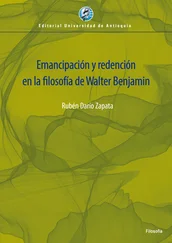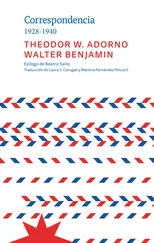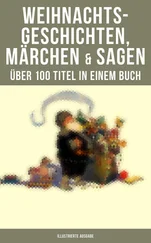If we had enough time — which I and hopefully you as well would appreciate — I could introduce you to another strange personage who appeared at this point in Hauser’s life, the distinguished gentleman who adopted him. We cannot explore this man’s role in the story just now, but suffice it to say that people were concerned for Kaspar Hauser’s safety and he was taken from Nuremberg to Ansbach, where Anselm von Feuerbach himself held the post of presiding judge. That was in 1831. Kaspar Hauser would live for two more years, until he was murdered in 1833. How, I will tell you now in closing. In the meantime he had undergone a striking transformation. After some time, as quickly as his mental faculties had developed in Nuremberg and his finer talents likewise, his development suddenly came to a halt, his character dimmed and ultimately, at the end of his life — he was no older than thirty-one — he had become an average, even mediocre person, who made an honest living as a court clerk and with paper crafts, at which he was very skilled. But apart from this, he displayed neither industriousness nor any great love of the truth.
It happened on a December morning in the year 1833. A man came up to him in the street with the words: “I bear greetings from the court gardener, who inquires as to whether this afternoon you might not like to be shown the artesian well in the park, at such-and-such a time.” Around four o’clock Kaspar Hauser showed up at the court gardens. Not seeing anyone at the artesian well, he continued on another hundred steps. A man then emerged from the bushes and gestured to him with a violet bag, saying: “I give you this bag as a gift!” Kaspar Hauser had hardly touched it when he felt a stab, the man disappeared, Kaspar let the bag fall to the ground and then dragged himself home. But the wound was fatal. He died three days later, but not before being questioned. Whether this unknown man was the same that had tried to kill him in Nuremberg four years earlier remained as murky as everything else. There were even people who claimed the stab wound was inflicted by Kaspar Hauser on himself. But the bag was found, and with it something quite extraordinary. It contained only a folded note, with a message written in mirror script: “Hauser will be able to reveal to you exactly what I look like and whence I come. To spare Hauser the trouble, I will tell you myself where I am from. I come from the Bavarian frontier. I will even tell you my name.” But what followed were just three capital letters: M L O.
I’ve already told you that there are forty-nine volumes of files in the Munich State Archives. King Ludwig I, who took great interest in the affair, is said to have examined them all. And many scholars have since followed suit. The dispute over whether or not Kaspar Hauser was a Baden prince is still unsettled. Every year there’s some new book claiming to solve the riddle at last. We can wager a hundred to one that when you’re all grown up, there will still be people unable to tear themselves away from this story. If such a book falls into your hands, perhaps you’ll read it, to see whether it holds the resolution that the radio station still owes you.
“Caspar Hauser,” GS, 7.1, 174–80. Translated by Jonathan Lutes.
Broadcast on Radio Berlin, November 22, 1930, and on Southwest German Radio, Frankfurt, December 17, 1930. The broadcast was announced in the Funkstunde for November 22, 1930, from 3:20–3:40 pm, and in the Südwestdeutsche Rundfunk-Zeitung for December 17, 1930, from 3:25–3:50 pm.
1Anselm Ritter von Feuerbach, Kaspar Hauser: Beispiel eines Verbrechens am Seelenleben des Menschen [Kaspar Hauser: A Case of a Crime against the Soul of a Human Being] (Ansbach: Dollfuss, 1932), 1–2. Feuerbach’s book was greatly influential in making Kaspar Hauser and his case famous throughout Europe and beyond.
2Feuerbach, Kaspar Hauser, 12–14.
3Georg Friedrich Daumer (1800–1875) played host and teacher to Kaspar Hauser and wrote several books about him.
4For Kaspar Hauser’s autobiography, see Jeffrey Moussaieff Masson, Lost Prince: The Unsolved Mystery of Kaspar Hauser (New York: The Free Press, 1996), 187–95.
As a boy I learned history from the Neubauer, which is still used in many schools, I believe, but perhaps now looks different than it did in those days. 1Back then what especially struck me about the book was that most of its pages were divided into large and small print. The parts in large print covered princes, wars, peace treaties, alliances, dates, etc., which we had to learn, though I did not enjoy doing so. The parts in small print dealt with so-called cultural history, including the habits and customs of people in earlier times, their convictions, their art, their knowledge, their buildings, and so on. Learning these things wasn’t required. We only had to read them over, and this I enjoyed greatly. As far I was concerned, there could have been even more of it, no matter how small the print. There wasn’t much discussion of it during class. Our German teacher would say: “We’ll hear about that in history class,” and our history teacher: “We’ve already heard about that in German class.” In the end, we heard almost nothing about it.
About Faust, for instance, maybe they told us that Goethe’s great drama is based on more than 200 years of lore concerning the arch-magician Johann Faust and his eternal pact with the devil; they told us that his life is depicted in ten or twenty books, which all trace back to two in particular, the first published in 1587 and the second in 1599; 2and perhaps they even told us that Dr. Johann Faust had indeed been a real person. But that was the extent of it. We didn’t hear what the first books said of the many magic stories, journeys, and adventures that filled his life, although not only are they important in order to understand Goethe’s Faust, they’re also fun.
To plunge right into it, I’ll tell you one of the most savage magic stories there is, which bears no resemblance to anything I’ve found in other books of legends. Admittedly, it’s not the only tale in which a magician knocks off someone’s head and then miraculously puts it back on. Now let’s hear the story:
Once when Faust was being fêted in a tavern by a few spirited fellows, they requested that he perform the magical decapitation of a man and the reattachment of his head. The houseboy offered himself as the subject of this endeavor and Faust proceeded to knock his head off. But when he wanted to place it back on, it wouldn’t go, leading Faust to conclude that one of the guests was interfering with magic of his own. Faust admonished the guests and, since the guilty party would not lift his spell, he made a lily sprout up from the table and cut off its blossom with the knife. At once, the head of the guest who had obstructed Faust’s magic fell from the trunk of his body. Faust then restored the houseboy’s head to his torso and went on his merry way. 3
In those days such performances were referred to by the scholarly term magia innaturalis, meaning unnatural magic, as opposed to magia naturalis, or natural magic, which was what we today call physics and chemistry and technology. The Faust we hear of in the first Faust book dealt more in the first type of magic — blatant, shameless magic that he exploited to obtain bags of money, good meals, expensive wine, trips to faraway lands on a magic coat, and other such things. However, the Faust from the theater, and also from the puppet play you will hear a little of later, as well as in Goethe’s drama, is not a rogue, but simply a man who consecrates himself to the devil in order to partake in the secrets of nature, and thus in natural magic. Indeed, the puppet play starts right off with the devil conversing in hell with his minister Charon, telling him how dull it’s getting being surrounded by all the miserable wretches that land in hell. I’d like, he says, to get just one great man down here. The devil Mephistopheles then seeks out Faust in order to seduce him. 4
Читать дальше












